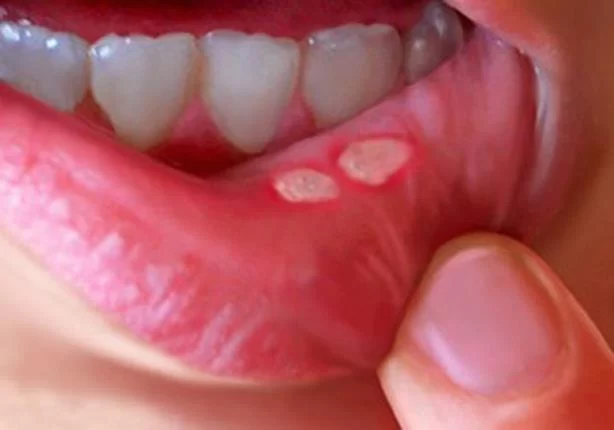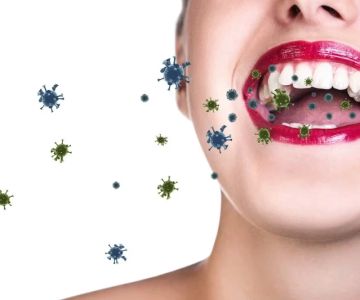
What are Oral Ulcers?
Oral ulcers, commonly known as mouth sores, are painful lesions that appear inside the mouth, often on the gums, tongue, or inside the cheeks. While they are not usually a serious medical condition, they can be a nuisance, causing discomfort while eating, drinking, and speaking. But is an oral ulcer a disease? The short answer is no. Oral ulcers are a symptom rather than a disease, but they can indicate an underlying condition or health issue.
1. Causes of Oral Ulcers
Oral ulcers can arise from a variety of factors, ranging from minor irritations to more serious health conditions. Here are the common causes:
1.1 Injury or Trauma
Accidental bites, burning your mouth with hot food, or brushing your teeth too aggressively can cause minor injuries to the soft tissues inside the mouth, leading to the formation of ulcers. These types of ulcers typically heal on their own within a week or two without any medical intervention.
1.2 Stress and Anxiety
It’s well-known that stress can have a significant impact on your physical health, and oral health is no exception. High-stress levels can trigger the development of mouth ulcers. This is often seen during times of emotional or physical strain, like exams or intense work pressure.
1.3 Nutritional Deficiencies
A lack of essential vitamins and minerals, especially vitamin B12, iron, and folic acid, can lead to the formation of oral ulcers. Poor nutrition can impair the body’s ability to maintain healthy tissues inside the mouth, making it more prone to damage and sores.
1.4 Autoimmune Conditions
Certain autoimmune diseases, such as lupus or celiac disease, can cause recurring oral ulcers. In these conditions, the body’s immune system mistakenly attacks its own tissues, resulting in ulcers and other symptoms. Individuals with these diseases may experience frequent mouth sores as part of their condition.
1.5 Hormonal Changes
Women may experience oral ulcers more frequently due to hormonal fluctuations during menstruation, pregnancy, or menopause. Hormonal imbalances can affect the immune system and increase the likelihood of developing mouth sores.
1.6 Infection
Certain viral infections, including herpes simplex virus (HSV), can cause cold sores or oral ulcers. These ulcers may appear on the lips or inside the mouth and can be accompanied by other symptoms like fever and swollen lymph nodes.
2. Types of Oral Ulcers
There are different types of oral ulcers, each with distinct characteristics and causes:
2.1 Canker Sores (Aphthous Stomatitis)
Canker sores are the most common type of oral ulcer. They are typically small, round, and white or yellow in the center with a red border. While the exact cause is unclear, canker sores are often triggered by stress, injury, or nutritional deficiencies. They usually heal within 1-2 weeks without scarring.
2.2 Cold Sores (Herpes Simplex Virus)
Cold sores, caused by the herpes simplex virus (HSV), typically appear on the lips or around the mouth. They are contagious and can be triggered by factors like stress, illness, or exposure to the sun. Cold sores often begin as blisters and eventually form scabs as they heal.
2.3 Traumatic Ulcers
Traumatic ulcers are caused by injury to the mouth’s tissues, such as biting the inside of your cheek or brushing too aggressively. These ulcers are generally round, painful, and heal relatively quickly once the injury is treated.
3. Symptoms of Oral Ulcers
Oral ulcers are typically characterized by the following symptoms:
3.1 Pain and Discomfort
The most common symptom of oral ulcers is pain, which can vary in intensity. Eating, drinking, and speaking may aggravate the pain, especially if the ulcer is large or located in a sensitive area of the mouth.
3.2 Redness and Swelling
The area surrounding the ulcer may appear red and inflamed. This is a sign of irritation or infection in the affected area.
3.3 Recurrence
Some individuals may experience recurrent oral ulcers, which can be a sign of an underlying condition like an autoimmune disease or viral infection. If you frequently develop mouth sores, it may be worth seeking medical advice to determine the cause.
4. Treatment for Oral Ulcers
Most oral ulcers do not require medical treatment and will heal on their own. However, there are ways to manage the discomfort and speed up the healing process:
4.1 Over-the-Counter Medications
There are various over-the-counter products, such as topical gels and mouthwashes, that can provide relief from pain and inflammation caused by oral ulcers. These medications typically contain ingredients like benzocaine or hydrocortisone.
4.2 Salt Water Rinses
Rinsing the mouth with warm salt water can help reduce inflammation and promote healing. Salt has natural antibacterial properties that can help cleanse the ulcer and prevent infection.
4.3 Avoiding Irritants
To prevent further irritation, it’s important to avoid spicy, acidic, or hot foods while you have an oral ulcer. Additionally, refrain from tobacco use and alcohol consumption, as these can worsen the ulcer.
4.4 Prescription Medications
If the ulcer is severe or persistent, a doctor may prescribe stronger medications, such as corticosteroids or antiviral drugs, to reduce inflammation or treat underlying infections.
5. When to Seek Medical Help
While most oral ulcers are harmless and go away on their own, there are times when medical attention is needed. Seek help if:
- The ulcer lasts longer than two weeks.
- The ulcer is unusually large or painful.
- You experience fever or other systemic symptoms.
- You have multiple ulcers that do not heal.
These could be signs of a more serious condition that requires medical intervention.
6. Preventing Oral Ulcers
While not all oral ulcers can be prevented, there are steps you can take to reduce your risk:
- Maintain good oral hygiene by brushing and flossing regularly.
- Eat a balanced diet with sufficient vitamins and minerals.
- Reduce stress through relaxation techniques such as yoga or meditation.
- Avoid trauma to the mouth by being mindful while eating and brushing.
Oral ulcers are a common and often temporary issue that most people will experience at some point in their lives. By understanding the causes, symptoms, and treatment options, you can manage oral ulcers effectively and prevent them from recurring. For more tips and advice on oral health, visit Dentistry Toothtruth.







 Westgate Dental Arts3.0 (2 review)
Westgate Dental Arts3.0 (2 review) Coventry Family Dental4.0 (247 review)
Coventry Family Dental4.0 (247 review) Familia Dental3.0 (1028 review)
Familia Dental3.0 (1028 review) Dr. Daniel S. Fife, DDS4.0 (31 review)
Dr. Daniel S. Fife, DDS4.0 (31 review) Dentistry At Suburban Square: Michael I. Wollock, DMD4.0 (1228 review)
Dentistry At Suburban Square: Michael I. Wollock, DMD4.0 (1228 review) Comfort Care Dental4.0 (1156 review)
Comfort Care Dental4.0 (1156 review) The Importance of Oral Health Education During Pregnancy for a Healthy Pregnancy
The Importance of Oral Health Education During Pregnancy for a Healthy Pregnancy Why Skipping Dental Checkups Can Lead to Bigger Oral Health Problems
Why Skipping Dental Checkups Can Lead to Bigger Oral Health Problems Best Tips for Brushing Your Teeth Properly for Healthy Gums: Essential Techniques for Oral Health
Best Tips for Brushing Your Teeth Properly for Healthy Gums: Essential Techniques for Oral Health Advantages of Porcelain Dental Restorations
Advantages of Porcelain Dental Restorations How Can Diabetes Cause Tooth and Gum Problems? Preventing and Managing Oral Health Issues
How Can Diabetes Cause Tooth and Gum Problems? Preventing and Managing Oral Health Issues Healthy Habits for Promoting Good Oral Health and Hygiene: Tips for a Healthy Smile
Healthy Habits for Promoting Good Oral Health and Hygiene: Tips for a Healthy Smile